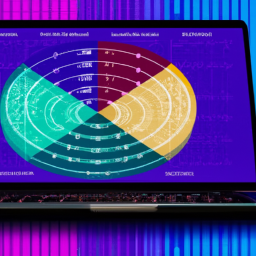Can IT Services Provide Analytics And Reporting Tools?
In today’s fast-paced and data-driven world, businesses are constantly seeking ways to gain insights and make informed decisions. One question that often arises is whether IT services can provide the necessary tools for effective analytics and reporting. The answer is a resounding yes. IT services have evolved to not only provide technical support but also offer a range of analytics and reporting tools that can help businesses analyze data, monitor performance, and track key metrics. These tools are essential for businesses to stay competitive and make data-driven decisions that drive growth and success.
Can IT Services Provide Analytics and Reporting Tools?
Yes, IT services can certainly provide analytics and reporting tools. In today’s increasingly data-driven business world, analytics and reporting have become essential for organizations to make informed decisions, monitor performance, and achieve their goals. IT services play a crucial role in enabling this by developing and implementing specialized software and systems that gather, analyze, and report on vast amounts of data. In this article, we will explore the types of IT services that can provide analytics and reporting tools, the importance of analytics and reporting, the different types of analytics, the role of reporting tools, and the benefits of using them.
What are IT Services?
Before we dive into the specifics of analytics and reporting in IT services, let’s first clarify what IT services encompass. IT services refer to the delivery of technology-related services to businesses, organizations, and individuals. These services can range from setting up and managing IT infrastructure to providing software development, cybersecurity, network management, and support services. IT services are crucial for businesses to leverage technology effectively and stay competitive in today’s digital age.
Types of IT Services
There are various types of IT services available, each catering to different business needs. Let’s explore some common types of IT services that can also provide analytics and reporting capabilities.
Managed IT Services
Managed IT Services involve the outsourcing of IT operations and responsibilities to a third-party provider. These providers, often referred to as managed service providers (MSPs), offer proactive management and support of IT infrastructure, including servers, networks, databases, and security systems. While managed IT services primarily focus on the ongoing management of technology, many MSPs also provide analytics and reporting tools to give businesses insights into their IT performance, usage patterns, and potential areas for improvement.
Cloud IT Services
Cloud IT services involve the delivery of IT resources and capabilities through the cloud, eliminating the need for on-premises infrastructure and reducing maintenance costs. Cloud service providers offer a wide range of services, including virtual servers, storage, data backup, and software-as-a-service (SaaS) applications. Many cloud providers also incorporate analytics and reporting features into their offerings, enabling businesses to track and analyze their cloud usage, costs, and performance.
IT Consulting Services
IT consulting services comprise the expertise and guidance provided by IT professionals to assist businesses in making strategic technology decisions and implementing effective IT solutions. IT consultants assess a company’s current IT infrastructure, identify opportunities for improvement, and provide recommendations on technology adoption, process optimization, and cost reduction. While IT consulting services primarily focus on advisory roles, consultants often assist in the selection and implementation of analytics and reporting tools that align with an organization’s specific needs and goals.
IT Support Services
IT support services refer to the technical support and assistance provided to end-users and businesses regarding software, hardware, network issues, and general IT troubleshooting. IT support teams are responsible for maintaining smooth IT operations, resolving technical problems, and ensuring minimal disruptions to business processes. While IT support services may not directly develop analytics and reporting tools, they play a crucial role in ensuring these tools are effectively implemented and supported within the organization.
Importance of Analytics and Reporting
Analytics and reporting have emerged as critical elements for businesses to enhance decision-making, gain insights into their operations, and drive efficiency. By employing advanced analytics and reporting tools, organizations can extract meaning from complex data sets, identify trends and patterns, and make data-driven decisions. The importance of analytics and reporting lies in their ability to enable businesses to measure performance, improve processes, identify opportunities, and address challenges effectively.
What is Analytics?
Analytics involves the process of discovering, interpreting, and communicating meaningful patterns and insights from data. It encompasses a range of techniques and tools used to examine data and derive valuable information. Analytics can help businesses understand their historical performance, uncover hidden correlations, predict future outcomes, and prescribe actions to optimize business operations. From sales data analysis to customer behavior tracking, analytics provides a powerful lens through which organizations can gain a deeper understanding of their processes and make informed decisions.
Why are Analytics Important?
Analytics play a pivotal role in driving business success and competitive advantage in today’s data-driven world. Here are some key reasons why analytics is important:
1. Data-Driven Decision Making: Analytics enables businesses to base their decisions on data and insights rather than relying on subjective opinions or intuition. By making data-driven decisions, organizations can reduce risks, optimize processes, and capitalize on opportunities.
2. Performance Monitoring and Measurement: Analytics allows businesses to track and monitor key performance indicators (KPIs), helping them evaluate their progress towards strategic goals. Organizations can identify areas of improvement, set realistic targets, and align their efforts to achieve optimal performance.
3. Identifying Trends and Patterns: Analytics helps in uncovering trends, patterns, and correlations within large datasets that may not be apparent through manual analysis. By identifying these insights, organizations can make informed changes to their strategies, product offerings, and customer experiences.
4. Predictive Capabilities: Advanced analytics techniques enable businesses to predict future outcomes based on historical data and trends. By forecasting potential scenarios, organizations can make proactive decisions, plan resources effectively, and mitigate risks.
5. Improving Operational Efficiency: Analytics provides organizations with insights into their processes, bottlenecks, and areas of inefficiency, enabling them to optimize their operations, reduce costs, and improve overall efficiency.
Types of Analytics
Analytics can be classified into four main types, each offering different perspectives and insights into the data being analyzed. Let’s explore these types of analytics:
Descriptive Analytics
Descriptive analytics focuses on summarizing historical data to provide insights into what has happened in the past. It involves techniques such as data visualization, reporting, and basic statistical analysis to understand trends, patterns, and relationships within data. Descriptive analytics serves as the foundation for more advanced forms of analytics, showcasing historical performance and providing a basis for further analysis.
Diagnostic Analytics
Diagnostic analytics aims to understand why certain events occurred by examining data and uncovering causal relationships. It involves investigating outliers, anomalies, and deviations from expected outcomes to identify the factors driving specific behaviors or events. Diagnostic analytics helps organizations gain insights into the root causes of problems, performance gaps, and opportunities for improvement.
Predictive Analytics
Predictive analytics utilizes statistical models and forecasting techniques to predict future outcomes based on historical data. It involves analyzing historical patterns, identifying trends, and building predictive models to forecast future behaviors or events. Predictive analytics enables organizations to anticipate customer behavior, optimize resources, make accurate sales forecasts, and mitigate risks effectively.
Prescriptive Analytics
Prescriptive analytics represents the most advanced form of analytics and focuses on providing recommendations and optimal actions based on the analysis of historical and real-time data. It combines techniques from descriptive, diagnostic, and predictive analytics to suggest the best course of action given a specific objective or constraint. Prescriptive analytics empowers organizations to make proactive decisions, optimize processes, and maximize business outcomes.
What are Reporting Tools?
Reporting tools are software applications or platforms that enable businesses to generate, analyze, and distribute informative reports and dashboards based on their data. These tools allow organizations to consolidate data from various sources, transform it into meaningful insights, and present it visually to stakeholders. Reporting tools typically provide features like data visualization, ad-hoc reporting, scheduling, and collaboration capabilities, making it easier for businesses to track performance, monitor KPIs, and share vital information across the organization.
Benefits of Using Reporting Tools
Using reporting tools offers several benefits to organizations striving for data-driven decision-making and efficient information sharing. Here are some key advantages of using reporting tools:
1. Enhanced Data Visibility: Reporting tools provide a centralized platform for consolidating and visualizing data from multiple sources, allowing organizations to gain a comprehensive and real-time view of their operations.
2. Improved Data Accuracy: Reporting tools enable businesses to automate data collection, transformation, and validation processes, reducing manual errors and ensuring data accuracy.
3. Time and Cost Savings: With reporting tools, organizations can automate report generation and distribution, saving time and effort spent on manual reporting tasks. Moreover, these tools provide self-service capabilities, allowing users to generate ad-hoc reports without relying on IT teams.
4. Data-Driven Decision Making: Reporting tools help organizations convert raw data into actionable insights, empowering decision-makers to make informed choices based on up-to-date and accurate information.
5. Collaboration and Sharing: Reporting tools facilitate easy sharing and collaboration of reports and dashboards with stakeholders across the organization, promoting transparency and fostering better communication.
Conclusion
In conclusion, IT services can indeed provide analytics and reporting tools to businesses, enabling them to leverage data for decision-making, performance monitoring, and strategic planning. Whether through managed IT services, cloud IT services, IT consulting services, or IT support services, businesses can tap into a wealth of insights and capabilities to optimize their operations and stay ahead of the competition. With the right analytics tools and reporting platforms in place, organizations can unlock the power of their data, enhance their decision-making processes, and drive success in an increasingly data-driven world.








